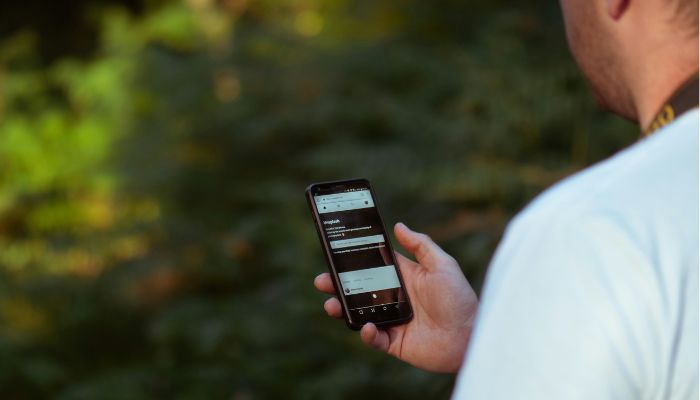
To implement the best practices in phone number validation, ensure you use regular expressions for formatting, sanitize inputs to eliminate unwanted characters, and support international numbers with proper country codes. Provide robust error handling to give users immediate feedback and consider integrating third-party validation services to verify the existence and activity of numbers.
Regularly update and monitor your validation processes to maintain accuracy and compliance with regulations. Adopting these practices reduces errors, fraud, and enhances communication efficiency. Continue to explore how these steps can significantly boost your data integrity and customer satisfaction.
Understanding Phone Number Validation
Ensuring that users input valid phone numbers is essential for maintaining accurate communication channels and data integrity. When your application handles international formats, it must recognize and validate numbers from different countries using phone number length validation regex. This prevents issues with user input by catching errors early.
Data cleansing is another key aspect. By validating phone numbers during the input stage and applying phone number validation rules, you keep your database free from incorrect or improperly formatted data. This enhances the overall quality of your data, making it more reliable for future use.
Error handling plays a critical role in phone number validation. By implementing robust error handling mechanisms, you can provide immediate feedback to users, guiding them to correct mistakes instantly. This not only improves the user experience but also reduces the likelihood of failed communications.
API integration is indispensable for seamless phone number validation. By integrating with external APIs, you can tap into up-to-date databases for accurate validation, ensuring that the numbers entered aren’t only correctly formatted but also active and reachable. This helps maintain the credibility and efficiency of your application.
Importance of Accurate Contact Data

Accurate contact data is vital for ensuring smooth communication and operational efficiency in your application. When your data is accurate, you enhance communication effectiveness, ensuring that messages reach the intended recipients without delays or errors. This directly impacts customer satisfaction, as clients appreciate timely and precise communication.
Moreover, maintaining high data accuracy helps in fraud prevention. By regularly validating contact information, you can identify and mitigate fraudulent activities, protecting both your business and your customers. Accurate contact data also contributes to overall business efficiency. With reliable data, you can streamline processes, reduce the time spent on data correction, and focus on strategic initiatives rather than operational hiccups.
In addition, accurate contact data supports better decision-making and analytics. You can trust the data you collect and analyze, leading to more informed business strategies. This, in turn, boosts your competitive edge in the market.
Therefore, prioritizing data accuracy in your contact information isn’t just a good practice, it’s essential for effective communication, customer satisfaction, fraud prevention, and business efficiency. By focusing on accurate contact data, you’re laying a strong foundation for the success of your application and your business.
Key Techniques for Validation
To ensure your contact data is accurate, let’s explore key techniques for validating phone numbers effectively. By following these methods, you can improve the quality of your data and enhance user experience.
- Regular expressions and data formatting: Use regular expressions to match phone numbers against patterns that are specific to different regions. This helps in ensuring that the numbers conform to expected formats, reducing errors in data entry.
- Input sanitization and error handling: Always sanitize inputs to remove any unwanted characters like spaces or dashes before processing the phone numbers. Implement robust error handling to provide meaningful feedback to users, guiding them to correct their input.
- User experience and form design: Design your forms to be user-friendly. Use placeholders and tooltips to show the correct format for phone numbers. This reduces user errors and makes data entry a smoother process.
- International numbers and country codes: Make sure your validation process supports international numbers by checking country codes. This is crucial for businesses with a global user base, ensuring that phone numbers from different countries are accepted and correctly formatted.
Verification Vs. Validation Dilemma
While both verification and validation are crucial for ensuring phone number accuracy, they serve distinct purposes that can impact your data quality differently. Verification involves confirming that a phone number exists and is active, which is essential for maintaining data integrity.
On the other hand, validation ensures that the phone number adheres to the proper format and structure, making it usable across various communication channels.
When you focus on verification, you’re checking if the number can receive calls or texts. This process helps in enhancing customer outreach efforts by ensuring your messages actually reach the intended recipients.
Validation, however, checks if the number follows the correct syntax, such as area codes and number lengths. While this might seem like a minor step, it significantly boosts the accuracy of your data.
Understanding the difference between verification and validation helps you prioritize tasks based on your goals. For example, if your primary concern is maintaining data integrity, you might lean more towards verification. Conversely, if you’re optimizing the entry process for new phone numbers, validation might be your focus.
Both processes are essential, and knowing when to use each can drastically improve your communication strategies.
Implementing Third-Party Validation Services

Recognizing the importance of both verification and validation, leveraging third-party validation services can streamline your phone number accuracy efforts. These services offer a seamless way to ensure your contact information is up-to-date and accurate, which is crucial for various reasons.
- Addressing fraud: Third-party validation services help you identify and weed out fraudulent numbers, safeguarding your business against potential scams.
- Customer trust: Accurate phone numbers mean that your communications reach your customers reliably, boosting their trust in your brand.
- Data privacy: By using reputable validation services, you can ensure that customer data is handled securely and in compliance with privacy laws.
- Regulatory compliance: Many industries have strict regulations about data accuracy. Third-party services can help you meet these requirements effortlessly.
Integrating these solutions into your system will enhance the user experience by reducing the number of failed contact attempts. Moreover, these services often come with advanced algorithms and real-time verification processes, making it easy to maintain high data quality.
Don’t underestimate the value of a clean and validated contact list; it’s a cornerstone for efficient and trustworthy customer interactions.
Mitigating Risks With Valid Phone Numbers

Ensuring that your phone numbers are valid can significantly mitigate risks associated with data breaches, fraud, and communication failures. When you validate phone numbers, you bolster data security by ensuring only legitimate numbers are stored and used. This reduces the likelihood of unauthorized access and data breaches.
Fraud prevention is another critical benefit. Valid phone numbers help you verify customer identities, reducing the risk of fraudulent activities. By confirming that a phone number is active and correctly formatted, you can flag suspicious patterns early on.
Effective customer communication hinges on data accuracy. Accurate phone numbers ensure your messages reach the right audience, improving engagement and trust. Imagine sending important notifications or updates to invalid numbers; it not only wastes resources but also erodes customer confidence.
Compliance requirements often demand that your data be both accurate and up-to-date. Many regulations, such as GDPR, mandate strict data handling standards. Validating phone numbers helps you meet these requirements, avoiding costly fines and legal issues.
Incorporating phone number validation into your processes is a proactive step towards a secure, efficient, and compliant system. It’s not just about having accurate data; it’s about safeguarding your business and enhancing customer trust.
Conclusion
Incorporating phone number validation is crucial for ensuring accurate contact data and enhancing communication. By adopting best practices and leveraging third-party validation services, you can mitigate risks associated with invalid numbers.
Remember, the balance between verification and validation is key. Implement these strategies, and you’ll maintain a reliable database that supports your business’s growth and customer engagement.
Don’t overlook the importance of accurate phone numbers in your contact management strategy.
FAQs Section
How do I validate international phone numbers?
To validate international phone numbers, use a validation tool that supports global formats. These tools convert numbers into a standard format, like E.164, which includes the country code and the local number. Make sure the country code is handled separately to ensure accuracy. Applying regular expressions can also help verify that the number follows the correct format for each country.
What tools are recommended for phone number validation?
Popular tools for phone number validation include Twilio and Abstract API. Twilio is well-known for its robust features and reliable integration with other services. Abstract API is another good option, offering easy setup and a straightforward API. Both tools help ensure that phone numbers are valid and can be used effectively in your applications.
How does phone number validation prevent fraud?
Phone number validation helps prevent fraud by verifying that the number provided is legitimate and active. By validating the number, you reduce the risk of fake or incorrect numbers being used. This process ensures that only real users can complete actions like signing up or making transactions, which helps protect your system from fraudulent activities.